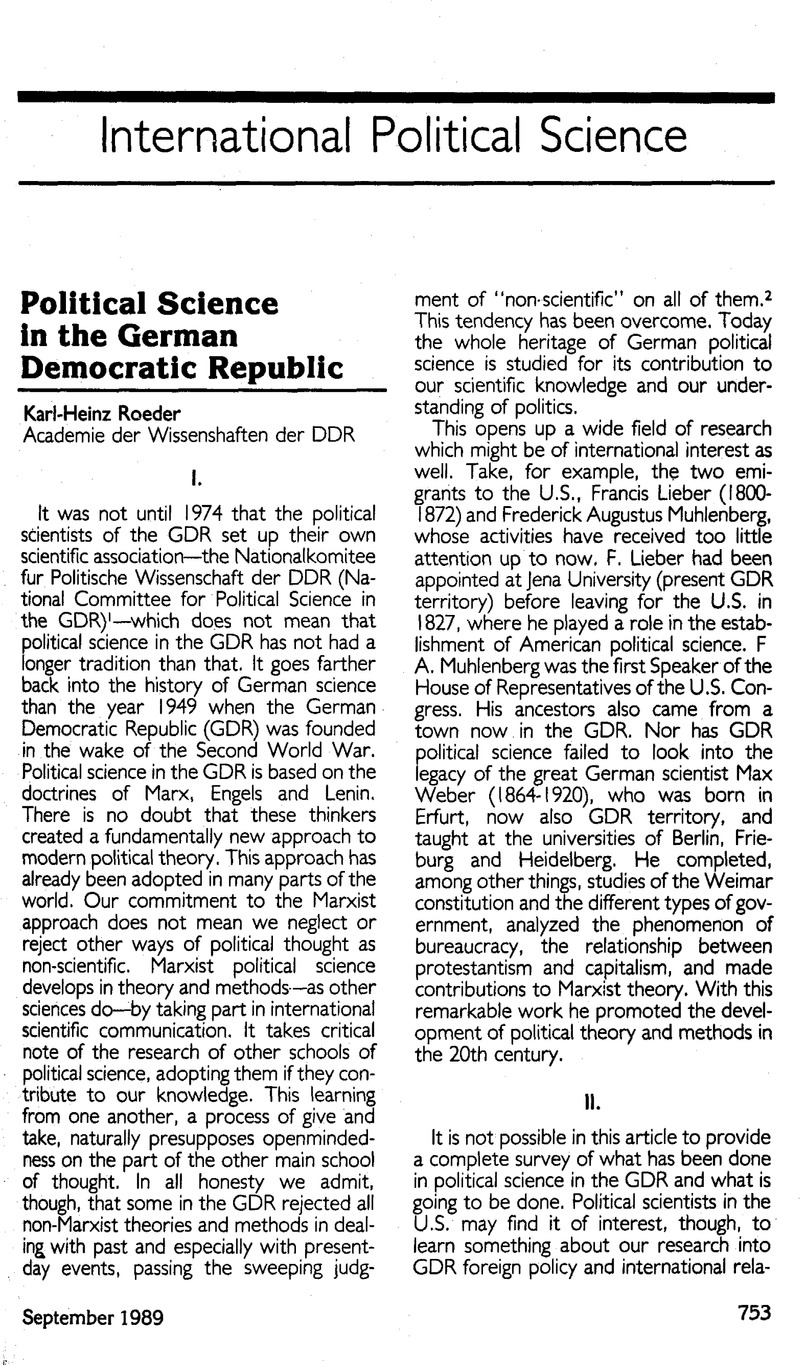Article contents
Political Science in the German Democratic Republic
Published online by Cambridge University Press: 02 September 2013
Abstract

- Type
- News
- Information
- Copyright
- Copyright © The American Political Science Association 1989
References
Notes
1. When the National Committee for Political Science in the GDR was set up in 1974 it was supposed to provide an institutional basis for the political scientists of the GDR to participate in international scientific communication. The establishment of diplomatic relations between the GDR and all western industrial countries (to U.S. in 1974) provided the inter-governmental prerequisites for cooperation of GDR scientists in international scientific organizations. In 1975 the National Committee for Political Science of the GDR joined IPSA.
2. Conversely, there were concepts in western political science denying Marxist political science its scientific character.
3. The following publications should be mentioned here: Horn, Rudiger and Schafer, Peter (1986), Geschichte der USA 1914-1945, Berlin: Deutscher Verlag der Wissenschaften Google Scholar; Montag, Claus et al. (1986), USA Aussenpolitik in der Gegenwart, Berlin: Staatsverlag Google Scholar; Roder, Karl-Heinz et al. (1987, 3rd edition), Dos politische System der USA Geschichte und Gegenwart, Berlin: Staatsverlag Google Scholar.
4. U.S. research in the GDR has been upgraded due to study stays of political scientists from the GDR in the U.S., the number of which has increased since the establishment of diplomatic relations in 1974.
Many thanks are owed to the International Research and Exchange Board (IREX) in Princeton, N.J., who has sponsored most of these stays.
- 1
- Cited by




